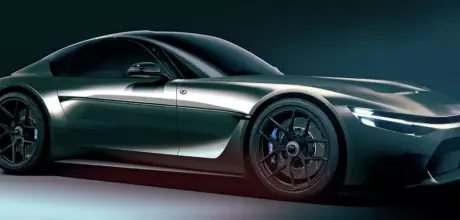Lexus Primes ‘LFR’ V8 Supercar: A New Rival in the High-Performance Arena
Lexus is gearing up to launch an all-new V8-engined supercar, poised to compete with the likes of the Aston Martin Vantage and Mercedes-AMG GT. This model will serve as a spiritual successor to the legendary Lexus LFA.
Parent company Toyota’s intense focus on motorsport has led to the evolution of its 2022 GT3 GR concept car into a working prototype. This prototype, recently seen testing at Spa-Francorchamps, is being refined by Toyota's Gazoo Racing division for top-tier competitions, including the Le Mans 24 Hours, with a target launch in 2026.
FIA Homologation and Road Car Development
FIA homologation rules necessitate that any GT3 racer must share its basic body design with a corresponding road car. Consequently, a street-legal version of the GT3 GR is expected to hit showrooms within the next two years. Toyota has emphasized its strategy of «commercialising motorsports cars rather than simply adapting production vehicles for use in motorsports,» as evidenced by the rally-honed GR Yaris hot hatch.
The Lexus Badge and Performance Specifications
The road-going GT3 GR is likely to be branded under Lexus, aligning with the premium marque's history of producing high-performance sports cars such as the LFA, LC 500, and RC F. The prototype’s powerful V8 engine, reportedly turbocharged, is expected to be augmented with hybrid technology in the road version, potentially named the Lexus LFR.
While specific details about the racer’s specifications remain under wraps, GT3 regulations generally allow for cars with 500-600 bhp and a weight limit of 1300 kg. This positions the Lexus LFR V8 supercar to be a formidable competitor among current GT3 offerings from Aston Martin, BMW, Ferrari, Ford, Lamborghini, McLaren, Mercedes-AMG, and Porsche.
Future-Proofing with Sustainable Technologies
Toyota has declared its intention to «revolutionise» the internal combustion engine, underscoring its belief in the ongoing relevance of ICE technology even amidst a global shift towards battery electric vehicles (BEVs). This includes significant investments in sustainable fuels and a collaboration with Yamaha to develop a hydrogen-compatible 5.0-litre V8 engine, potentially slated for the new sports car.
A Multi-Pathway Approach to Sports Cars
Gazoo Racing boss Masahito Watanabe has emphasized Toyota’s “multi-pathway” approach to sports cars, balancing ICE development with emerging technologies. He stated, “We still think the internal combustion engine has some potential… We don’t want to give up. It’s not over just yet, because if you look at the internal combustion engine, there’s still hydrogen combustion that can be a part of that zero-emission line-up.”
Lexus' Future in Performance Cars
Although Lexus has retired its RC and LC coupés in Europe and has not officially announced their replacements, the Electrified Sport concept revealed in 2021 underscores its commitment to high-performance vehicles. This electric concept, set for production by the end of the decade, shares its carbon-fibre monocoque underpinnings with Toyota’s GR GT3 concept and features a similar cab-rearward silhouette. This hints at the possibility of Lexus offering two supercars based on the same chassis but with different powertrains within the next five years.
Conclusion
The introduction of the Lexus primes ‘LFR’ V8 supercar marks a significant milestone in the brand's evolution. It combines Lexus’s heritage of large-engined sports cars with cutting-edge hybrid technology, promising to deliver an exhilarating driving experience. Keep an eye out for this revolutionary vehicle as it gears up to take on the competition and set new benchmarks in the world of supercars.


